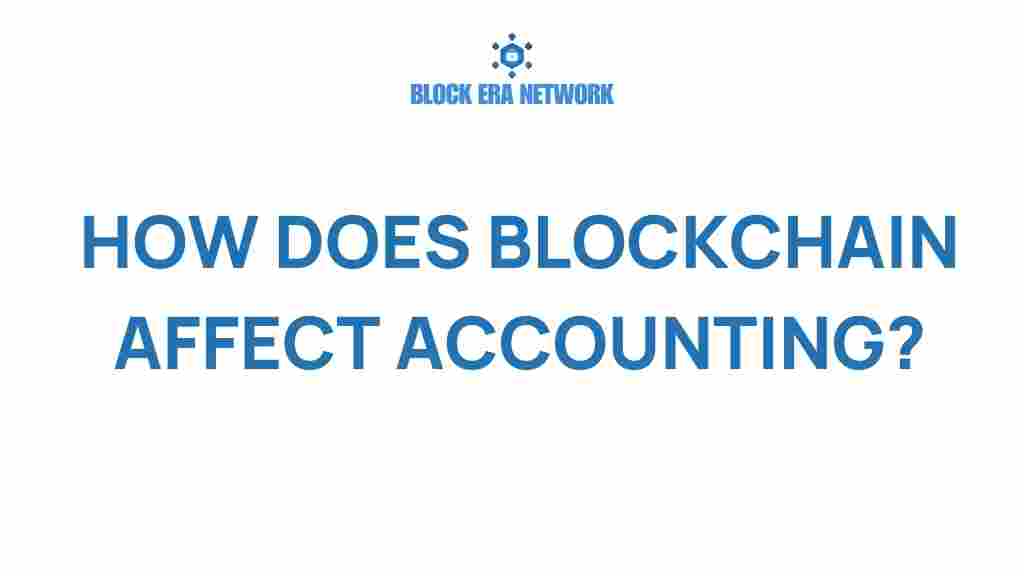Unveiling the Blockchain Revolution: Transforming Accounting Practices
The world of accounting is undergoing a significant transformation, thanks to the advent of blockchain technology. This innovation is reshaping how financial transactions are recorded, verified, and audited, enhancing transparency and efficiency in the industry. As organizations embrace digital transformation, understanding the implications of blockchain in finance becomes crucial for accountants and business leaders alike.
The Basics of Blockchain Technology
Before diving into its impact on accounting practices, let’s explore what blockchain technology entails:
- Decentralization: Unlike traditional ledgers, blockchain operates on a decentralized network of computers, or nodes, ensuring that no single entity has control over the entire database.
- Immutability: Once a transaction is recorded on the blockchain, it cannot be altered or deleted, providing a permanent record that enhances trust.
- Transparency: All participants in the network can view transactions, which fosters accountability and trust among users.
- Smart Contracts: These are self-executing contracts with the terms of the agreement directly written into code, allowing for automatic execution when conditions are met.
The Role of Blockchain in Accounting
Blockchain technology is not just a trend; it is a game-changer for the accounting profession. Here’s how:
1. Enhanced Transparency
With blockchain, all transactions are recorded in a public ledger that is accessible to all parties involved. This level of transparency is unprecedented in traditional accounting systems. Clients can monitor transactions in real time, leading to greater trust between accountants and their clients.
2. Improved Efficiency
Blockchain automates various accounting processes, significantly reducing the time spent on manual data entry and reconciliation. This results in:
- Faster transaction processing
- Reduction in human errors
- Lower operational costs
3. Streamlined Auditing
Auditing processes are simplified with blockchain, as auditors can access real-time data and trace transactions back to their origin. This allows for:
- More effective risk management
- Continuous auditing capabilities
- Reduction in audit times and costs
4. Innovative Financial Reporting
Blockchain enables new forms of financial reporting. Accountants can leverage real-time data to provide more accurate and timely financial statements. This innovation in finance reporting is crucial for decision-making.
Implementing Blockchain in Accounting Practices
Transitioning to blockchain technology in accounting requires a structured approach. Here’s a step-by-step process to guide organizations:
Step 1: Assess Your Needs
Identify which accounting processes would benefit from blockchain. Consider areas such as:
- Transaction recording
- Compliance and regulatory reporting
- Data security
Step 2: Choose the Right Blockchain Platform
Several blockchain platforms cater to accounting needs. Evaluate options based on:
- Scalability
- Cost
- Security features
Step 3: Train Your Team
Providing comprehensive training on blockchain technology is essential. Ensure your accounting team understands:
- How blockchain works
- The benefits it brings
- Best practices in utilizing the technology
Step 4: Pilot the Implementation
Before a full-scale rollout, conduct a pilot program. This allows you to:
- Identify potential issues
- Gather feedback from users
- Refine processes before full implementation
Step 5: Full Implementation
Once the pilot is successful, proceed with a full implementation. Monitor the system closely to ensure:
- Seamless integration with existing systems
- Compliance with regulatory requirements
Troubleshooting Common Challenges
<pWhile implementing blockchain in accounting, organizations may encounter challenges. Here are some common issues and their solutions:
Issue 1: Resistance to Change
Solution: Address concerns through training sessions and workshops. Highlight the benefits of blockchain in enhancing efficiency and reducing workload.
Issue 2: Integration Difficulties
Solution: Work with IT professionals to ensure that the blockchain system integrates smoothly with existing accounting software.
Issue 3: Regulatory Compliance
Solution: Stay updated on regulations regarding blockchain usage in finance. Collaborate with legal experts to ensure compliance.
The Future of Blockchain in Accounting
The future of accounting is bright with blockchain technology at the forefront. As businesses continue to embrace innovation, the role of accountants will evolve:
- Advisory Roles: Accountants will shift from traditional roles to becoming strategic advisors, leveraging blockchain data to provide insights.
- Focus on Value-Added Services: With automation handling routine tasks, accountants can focus on higher-value activities such as financial analysis and strategic planning.
- Enhanced Collaboration: Blockchain fosters collaboration among stakeholders, leading to more cohesive financial practices.
Conclusion
In conclusion, the integration of blockchain technology into accounting practices signifies a major leap towards achieving greater transparency and efficiency in the finance sector. As organizations navigate this digital transformation, embracing blockchain will not only streamline processes but also enhance trust among clients and stakeholders.
For more information on the impact of blockchain in financial services, visit the Financial Times. To explore how your organization can begin its blockchain journey, check out our comprehensive guide.
This article is in the category Blockchain Basics and created by Block Era Network Team
